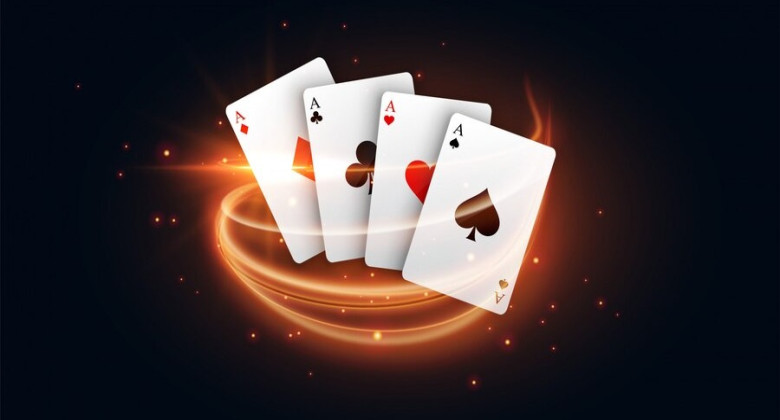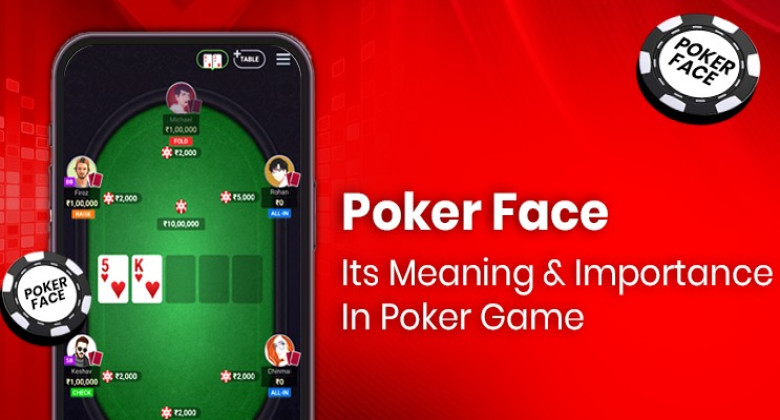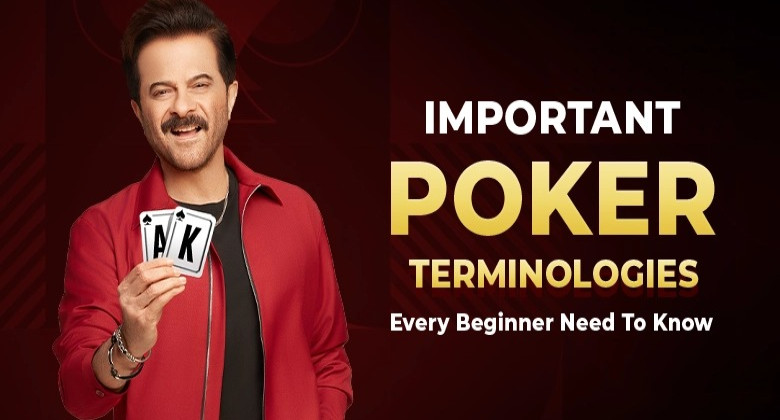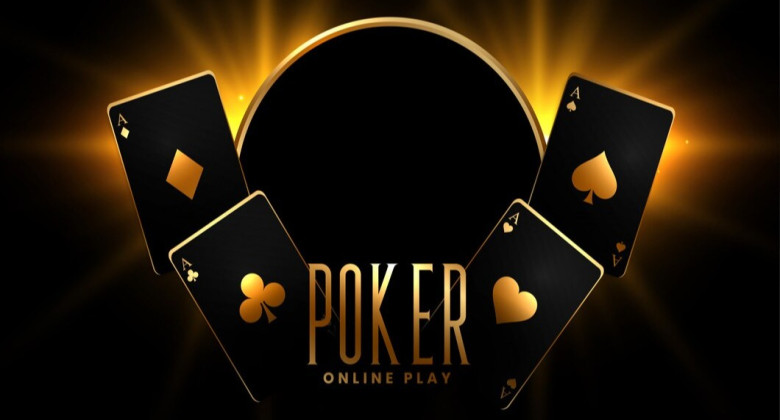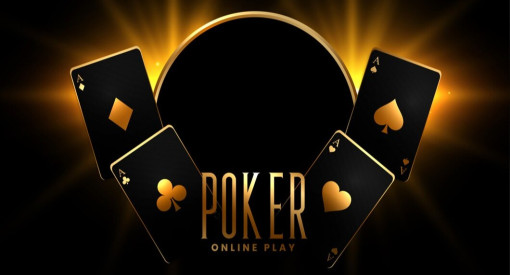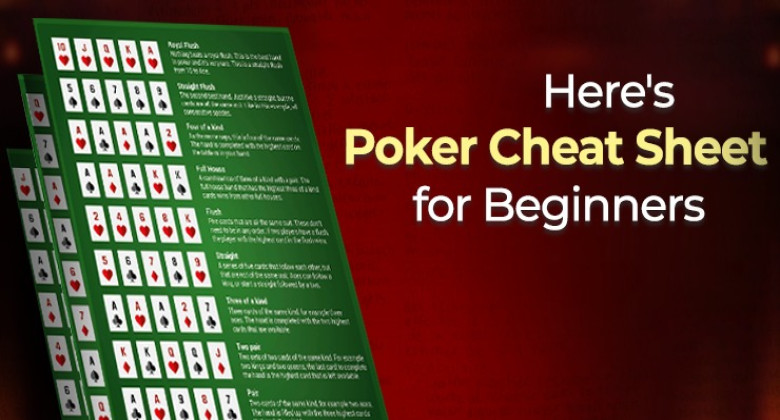
Texas Hold'em Poker Cheat Sheet
Poker is a popular card game that's both fun and challenging. If you're new to poker, it can initially seem overwhelming. But don't worry. But don't worry! We have a handy poker cheat sheet to help you start playing poker with confidence.
6 Poker Poker Cheat Sheet to Become a Poker King:
Before we move into the poker cheat sheet, let's cover some basics. Poker is played with a standard deck of 52 cards, and the goal is to win chips or money by either having the best hand at showdown or making your opponents fold. A poker cheat sheet is your secret weapon, providing quick reference to hand rankings, strategies, and odds. Helps players in making informed decisions. Here's a ultimate Poker Cheat Sheet for Beginners to improve the game and get a chance to win poker.
- Poker Hands
- The Poker Cheat Sheet
- Position Matters
- Betting Basics
- Bluffing
- Bankroll Management
- Poker Hand Rankings
Poker hands are the key to winning the game. Here's a quick rundown of the different poker hands from highest to lowest:
1. Royal Flush: A, K, Q, J, 10, all of the same suit (e.g., A♠K♠Q♠J♠10♠).
2. Straight Flush: Five consecutive cards of the same suit (e.g., 9♣8♣7♣6♣5♣).
3. Four of a Kind: Four cards of the same rank (e.g., 8♦8♠8♥8♣).
4. Full House: Three cards of one rank and two cards of another rank (e.g., Q♦Q♠Q♣3♦3♠).
5. Flush: Five cards of the same suit, not in sequence (e.g., 4♥7♥9♥J♥K♥).
6. Straight: Five consecutive cards of different suits (e.g., 6♠7♦8♣9♠10♦).
7. Three of a Kind: Three cards of the same rank (e.g., 5♠5♦5♣).
8. Two Pair: Two cards of one rank and two cards of another rank (e.g., 7♠7♦Q♣Q♦).
9. One Pair: Two cards of the same rank (e.g., 10♥10♠).
10. High Card: When no other hand is made, the highest card in your hand (e.g., Ace is a high card).
Must Read: Poker Playing Cards
- The Poker Cheat Sheet
Let's get to the heart of the matter: the poker cheat sheet. Based on your starting hand, this cheat sheet will help you decide at the poker table. Poker is a game of skill and strategy, so knowing when to fold, call, or raise is crucial.
1. Royal Flush, Straight Flush, Four of a Kind, Full House: These are the best poker hands. If you have one of these, don't be shy. Bet and raise confidently.
2. Flush, Straight, Three of a Kind, Two Pair: These hands are strong but not the best. You can bet and raise with these hands, especially if the community cards (the ones on the table) support your hand.
3. One Pair: If you have a pair, it's a decent hand, but you might need more to win. Consider your opponents and the community cards before deciding to bet, call, or fold.
4. High Card: This is the weakest hand. Be cautious if you only have a high card (like an Ace or a King). Your chances of winning with just a high card are slim. Consider folding if the bets get too high.
- Position Matters
Where you sit at the poker table matters a lot. There are three main poker positions:
1. Early Position: Players in early positions act first in a betting round. It would be best if you play strong hands from here.
2. Middle Position: Players in middle positions act after those in early positions but before those in late positions. You can play a wider range of hands here.
3. Late Position: Players in late positions act last in a betting round. You can play more hands from here since you have more information about what other players are doing.
- Betting Basics
Understanding how to bet is crucial in poker. Here are some essential poker betting tips:
1. Check: If no one has bet, you can choose to "check," which means passing your turn to the next player without putting any money in the pot.
2. Call: If someone else has bet, you can "call" to match their bet and stay in the hand.
3. Raise: You can "raise" to increase the size of the bet. It can be used to bluff or build a bigger pot with a strong hand.
4. Fold: If your hand isn't looking promising, you can "fold" to discard your hand and forfeit the round. This can save you from losing more money on a weak hand.
Must Read: Become an Expert Poker Player
- Bluffing
Bluffing is an essential part of poker. It's when you make your opponents believe you have a better hand than you do. Here are some poker bluffing tips:
1. Choose Your Spots: Only bluff sometimes. Pick your moments wisely.
2. Be Consistent: Try to maintain the same demeanor and betting pattern whether you're bluffing or not. It helps keep your opponents guessing.
3. Watch Your Opponents: Pay attention to how your opponents play. An expert player must know how to take poker notes to the opponents by notes making. If they are conservative, they might fold when you bluff.
- Bankroll Management
Lastly, managing your bankroll (the money you play with on poker) is crucial. Here are some tips:
1. Set a Budget: Decide how much money you're willing to risk before you start playing and stick to it.
2. Don't Chase Losses: If you're losing consistently, it's not a good idea to keep playing in the hopes of winning it all back.
3. Stay Disciplined: Avoid playing in higher-stakes games than you can afford, and don't let emotions drive your decisions.
By following this poker cheat sheet, you'll be well on your way to enjoying the game and improving your skills. Poker takes time to master, so practice and patience are your best allies. Good luck at the tables!
Get up to Rs 50,000* as Welcome Bonus



